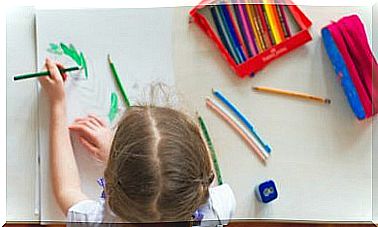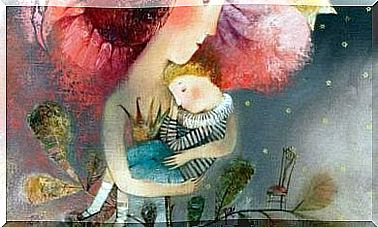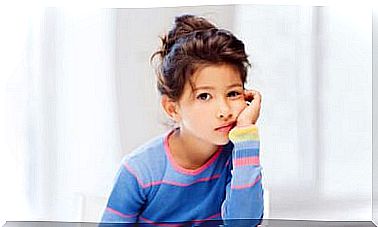Some Myths About Introverted Children
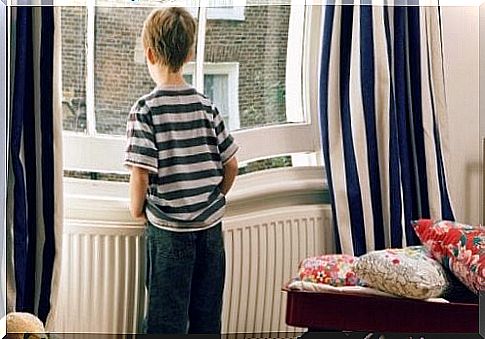
There are many myths about introverted children. They are often the product of the behavior of these children in the classroom when the teacher notices little participation and lack of relationship with peers.
Ironically, the opposite attitude is also a matter of concern for the teacher. It even seems that there is an ideal middle ground not clearly defined for the frequency of activity of a child.
Each child’s personality is so different that for the teacher it would be a superhuman task to make everyone follow a single pattern of behavior.
What are the most striking characteristics of introverted children?
Introverted children generally choose to have few personal relationships, being very selective with the people they spend time with. The consequence of this is that these children enjoy the company of those close to them as much as possible.
Another characteristic is that they show themselves to be empathetic, good listeners and reflective. When they need to perform a certain task, they prefer to do it alone or with few companies and feel uncomfortable when they make mistakes.
Some Myths About Introverted Children
Next, we’ll introduce and analyze some of the myths and prejudices about introverted children. You’ve probably heard more than one of them.
“A shy child and an introverted child are the same thing”
A very common confusion is to think that being an introvert is the same as being shy. And really that’s not true.
On the one hand, shyness can be defined as a feeling of malaise in social situations, associated with anxiety processes. On the other hand, introversion is the need for time alone to develop ideas and recharge your energy.
An introverted child can develop without problems in social situations. But regardless, he feels the need to have his moment of solitude.
“They are not normal”
This is one of the most repeated myths about introverted children out there. These kids are classified as “weird” in that they don’t try to be like most.
The truth is, they are individualistic people who expect to be valued for their way of thinking. For these children, popularity does not influence decision making, as it usually does for others.
“Loneliness is the only friend”
Introverted children enjoy time alone thanks to their analytical and reflective nature. But that doesn’t mean they don’t like to have company. The connections they establish with their peers will always be selective and of quality.
Your mind is a fun solution-producing machine, which you share with your friends enthusiastically.
“Leadership is not for them”
Contrary to popular belief, this type of person contributes to good teamwork environments. Like introverts, introverts can be great leaders by standing out with brilliant ideas, empathy, and great critical thinking.
When communicating in front of the public, they tend to be clearer and more objective, as they spend a lot of time defining and maturing their ideas.
“They don’t like to talk”
If these people have nothing to say or the topic doesn’t appeal to them, they won’t say anything. Introverted children only talk about topics that catch their attention.
In general, they are better listeners and observers than speakers. Therefore, impulse is not a motive that makes them participate in a conversation. They are people who carefully analyze their opinions before sharing them with others.
Your inner monologue never stops. That’s why they don’t worry about whether they’re being heard or not.
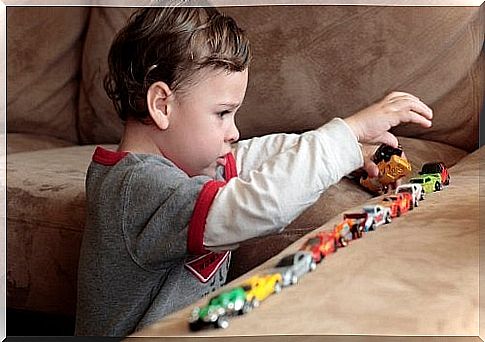
“They don’t have fun or relax”
These people find fun and relaxation in contact with nature or in their favorite space at home. Crowded public spaces are definitely not your favorite places.
They do not seek to experience strong emotions or adrenaline rush situations. Too many people talking at the same time and too much noise lead them to isolation and introspection. Activities like solving a sudoku, taking time to read or helping a friend solve a problem are some of his favorite activities.
These children enjoy spending time alone and take advantage of it by organizing their personal ideas and projects.
“They are negative and depressive”
Your personality can be interpreted as negative by the affinity with loneliness. But the opposite happens with them than with extroverted children, who get depressed when they don’t have a company for a long time. This association may be logical, but it is not true for introverted children.
So it’s just another myth about introverted children.
